University of Toronto EWH Chapter Hosts 3rd Annual Symposium
Written by Jen Ma, with the University of Toronto EWH Chapter:
The University of Toronto’s third annual Engineering World Health symposium, themed Origins and Opportunities, hosted a number of speakers and workshops to share innovative ideas about world health. Engineers and non-engineers alike were drawn to the full-day event and enjoyed speaker-sessions, panel discussions, interactive workshops as well as a networking lunch and poster session.
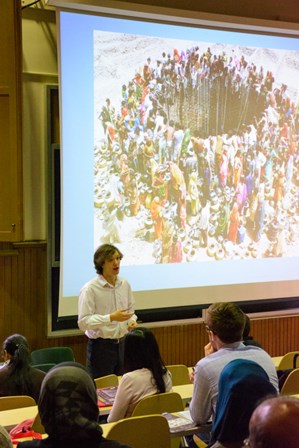
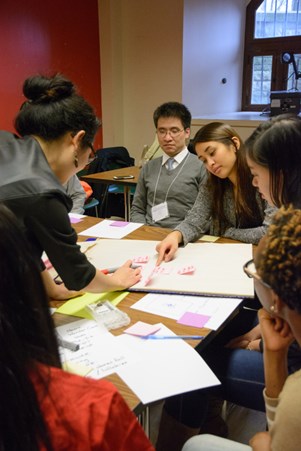
Throughout the symposium, a common theme emerged as speakers, regardless of their backgrounds, placed a particular emphasis on studying the context of the problem along with its technical aspects to eventually create an effective solution. This knowledge is best acquired by hands-on experience through collaborations, volunteering, and fieldwork. It also became apparent that there is no limit in age or background–with enough drive, we are all capable of making an impact on Global Health!
The poster session gave students an opportunity to showcase their research and interact with attendees from differing backgrounds. It was wonderful to see the genuine interest in global health work and to observe the innovative research being performed at the University of Toronto. Congratulations to this year’s poster winners, Bryan Gellner and Pengzhou Lu, for their presentation on Normothermic Ex Vivo Heart Perfusion!
We were fortunate to have the support of multiple organizations and student groups, who were on hand to inform students about other potential opportunities to participate in global health related activities. We are immensely grateful to our sponsors, as well as the speakers, moderators, and poster judges that made this thought-provoking day of discovery and discussion a reality. We’d also like to acknowledge the tireless efforts of the Symposium Organizing Committee, who volunteered their time (and sanity) to make this event a success.
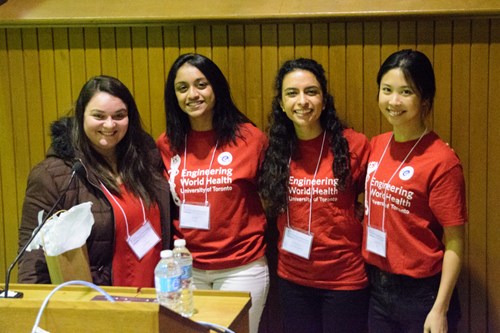
After a morning of inspiring speakers, symposium attendees enjoyed lunch and a poster session, followed by workshops. The Origins workshop What’s Your Problem?! – Tackling challenges in complex healthcare systems, led by consultant Jessica Fan, involved an interactive brainstorm session to explore problems in healthcare to identify a common issue. This workshop emphasized the importance to identify the root cause of a problem and find a resolution as opposed to treating the symptoms of an issue. Fan introduced a 3 stage process: distinguish problems and their common denominator, identify the stakeholders and understand their needs through the “empathy pathway”, then redefine the problem.
The Opportunities workshop, titled Ideation and Designing for Healthcare, was led by Lily Lo and Hadi Salah from MaRS and Hacking Health. The participants broke into small groups to practise systematic strategies and come up with ideas improving healthcare. One memorable exercise was writing down questions that challenged the status quo–why do we have to go to the doctor? Why do we have to go to grocery stores to buy food? Why can’t we grow our own food?–and imagining potentially better approaches. Other strategies were explored, such as simulating the life of a hypothetical patient to generate ideas for better patient care and using the “fast idea generator” as a tool to think differently and systematically for more effective idea generation.
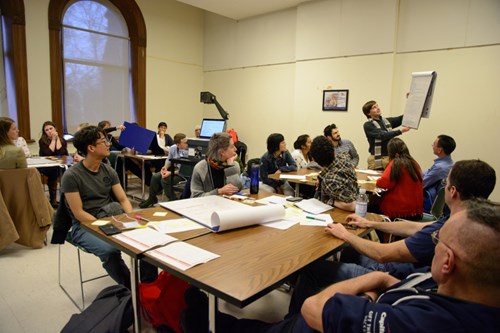
Speakers in the afternoon Opportunities session included pioneers in the exciting fields of regenerative medicine, synthetic biology, and biomedical engineering. They also commented on the future opportunities and challenges of their field of research.
At the conclusion of this year’s Symposium, we’ve grown to appreciate the immense support for global health initiatives within the UofT community. Next year, we will return, armed with new knowledge and ready to take on the world once again. We hope to see you there!
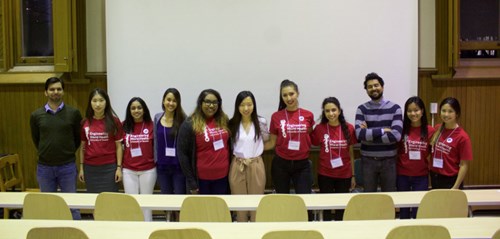
*
Thanks to the Toronto Chapter for sharing their work with us! Read more about the Symposium’s speakers and events: https://ewhuoft.wordpress.com/